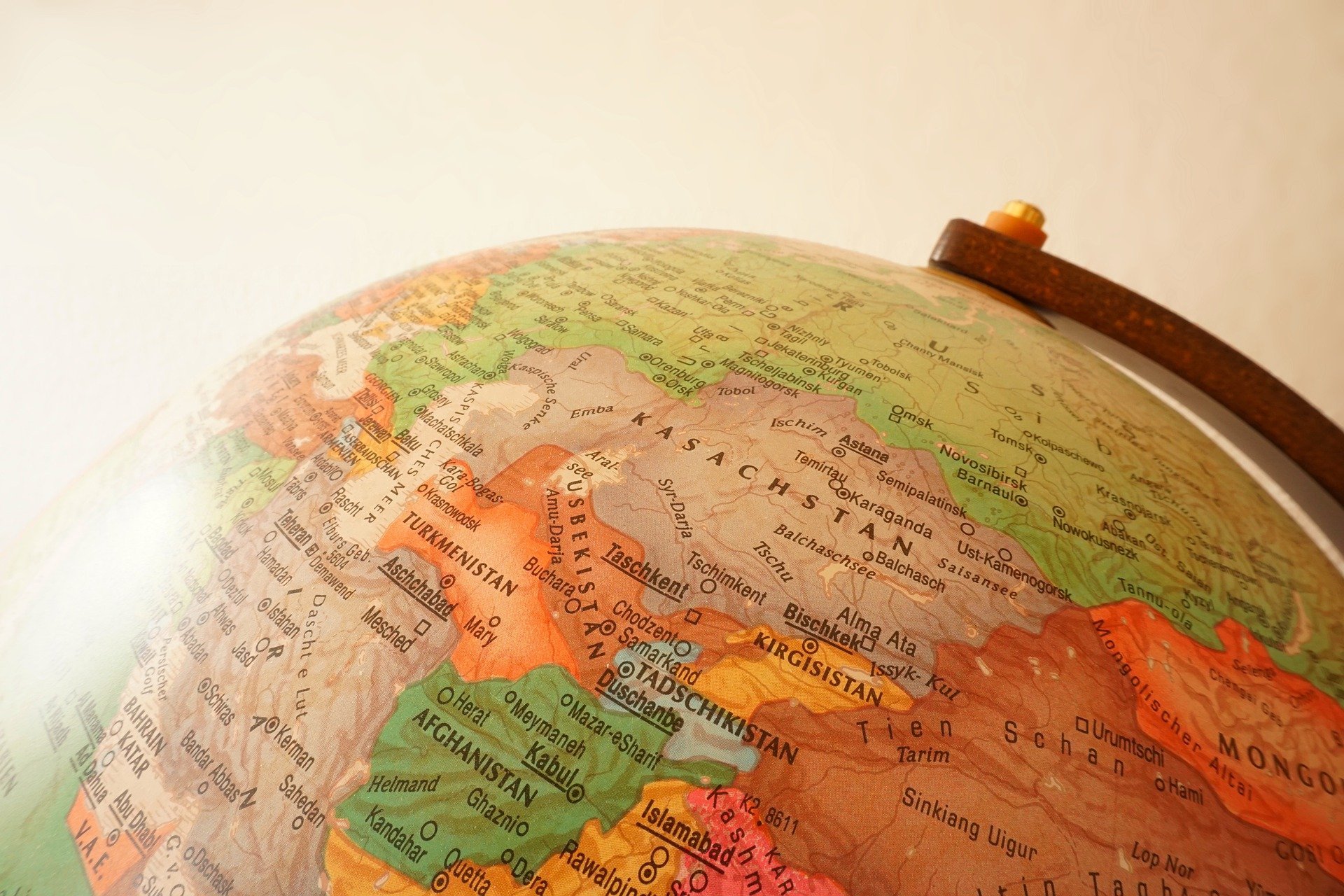At first glance, there is little that connects China and the Organization for Security and Cooperation in Europe (OSCE). The Organization emerged as a platform for dialogue between East and West during the Cold War and was transformed into a permanent institution in 1995 with the main mandate to increase security based on a cooperative approach for its 57 participating States as well as for the more than one billion citizens living in those countries.
New regionalism in Central Asia
From the Soviet Union to the Post-Soviet Space and Beyond
Recently the IIP – with Maryia Hushcha excellently in charge – organized jointly with partners a conference on the question if and in what way the post-Soviet space exists. Of course, one can answer this question in different ways – depending on the perspective one chooses. One way would be to look at it from a pure time perspective or regard it from a geographical point of view. Then the answer must be yes, there is an area which can be defined as post-Soviet geographically and an era which is defined as post-Soviet historically. But from a political and especially geopolitical point of view you may look at it differently. Post-Soviet could be used in a derogatory term and deny the countries, which have been included in - or even occupied by - the Soviet Union, an independent position and policy. Therefore, I can fully understand the hesitancy of many politicians and social scientists of these countries to accept that term.
The Russian Political System: The Trap of the Empire's Legacy
A few weeks ago, I went into a souvenir store in one of the capitals of Baltic states. Three saleswomen were talking in Russian and the oldest of them was fiercely trying to prove something to her colleagues, mentioning in her speech the names of Soviet leaders from a distanced epoch – Brezhnev, Kosygin... It was so strange to witness these nostalgic signs of another era in one of the successful and modernized capitals of the new Europe. But the legacy of the empire has not simply disappeared, it is here with us in the present moment.
Some thoughts on the “homo sovieticus”: is it a useful term?
If we are to discuss the homo sovieticus, it is essential to know what we are talking about. Can this notion really work as a scientific concept? Does it have any analytical purchase? The expression has been often used as a pejorative term, a slur that is meant to refer to all the negative aspects of the Soviet historical experience, which allegedly made an irreversible impact on the post-Soviet people. In its most extreme forms, it may even be deemed racist. The homo sovieticus is envisioned as some kind of an “orc” from the “Soviet Mordor.” He is evil and repulsive by his very nature.
Thirty Years On - Is there still ‘post-Soviet’ space?
Lernen von Afghanistan
Afghanistan liegt weit entfernt von uns, die wir uns im Herzen Europas meist sehr sicher fühlen. Dennoch sollten wir die katastrophale Entwicklung, die dieses Land durchgemacht hat, und vor allem das Scheitern der militärischen Intervention nicht einfach aus unseren Gedanken verdrängen. Zwar haben alle militärischen Interventionen in Afghanistan für die Bevölkerung viel Unglück gebracht, aber die US- beziehungsweise Nato-Intervention war mit großen Hoffnungen auf Befreiung, Modernisierung und Demokratisierung verbunden. Dass nach den brutalen Anschlägen vom 11. September 2001 eine militärische Reaktion folgen würde, war bald klar. Aber es hätte nicht ein zwanzigjähriger Krieg werden müssen, der letztendlich katastrophal scheiterte.
China’s Influence in the Western Balkans: Partnership or Confrontation?
After the events in 2014 in Ukraine, namely the illegal annexation of the Crimean Peninsula and the military interference in Eastern Ukraine by the Russian Federation, many experts started to talk about the eruption of a new Cold War. However, this has been challenged again by many, who stated that the circumstances are now different and that we do not see a competition of capitalist versus communist ideology. However, another very influential actor into the geopolitical sphere gained attention. China. So, the tenor shifted towards the notion that there is something like a new Cold War, but it is not about the West versus Russia, but about the West versus China.
9/11 AND AFGHANISTAN: WHAT TO DO NOW?
„We will make no distinction between the terrorists who committed these acts and those who harbor them“. These were the words President Bush used in his address to the nation after the terrible attack on the World Trade Centre and the Pentagon 20 years ago. The U.S. President chose these words deliberately as National Security Chief Condoleezza Rice asked him if he really would use this phrase. Especially Vice-President Dick Cheney insisted on that sentence knowing and perhaps, wishing for all the consequences this message had caused. In this way, the long Afghanistan war started.
Scheitern oder Versagen: Deutschland diskutiert die Hintergründe und sicherheitspolitischen Folgen des historischen Debakels in Afghanistan
Die verstörenden Bilder vom Kabuler Flughafen brennen die Niederlage der stärksten Staatenkoalition der Welt und ihres lokalen Verbündeten gegen eine primitiv ausgerüstete Widerstandsbewegung ins kollektive Gedächtnis auch der Deutschen ein. Und anders als in Vietnam, in Libyen und dem Irak, als man hierzulande die militärischen und politischen Fehlschläge der befreundeten Supermacht mehr oder weniger selbstgerecht kommentieren konnte, muss Deutschland diesmal seinen Teil der Verantwortung tragen. Das fällt umso schwerer, als Afghanistan war nicht irgendeine Intervention war. Afghanistan war der längste, kostspieligste und blutigste Einsatz der westlichen Staatengemeinschaft seit dem Ende des Ost-West-Konflikts. Und auch in der Reihe der deutschen Auslandseinsätze sticht Afghanistan heraus. Ganz am Anfang und unter dem Schock der einstürzenden Zwillingstürme stand die Bündnissolidarität im Kampf gegen Al Qaida im Zentrum des Kalküls der rot-grünen Koalitionsregierung.











